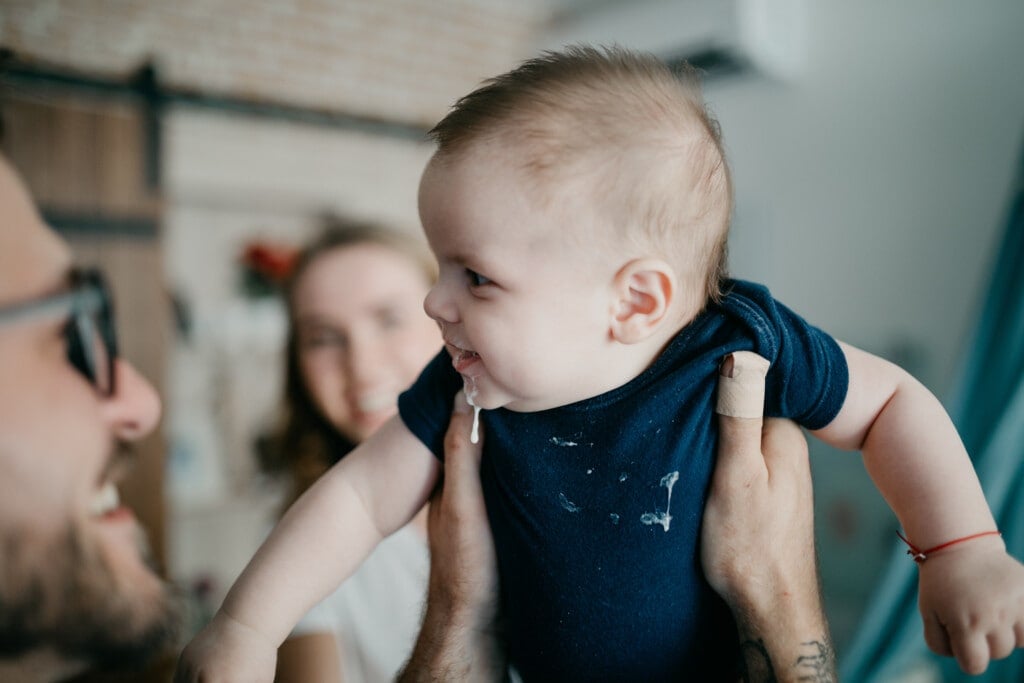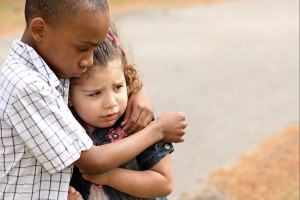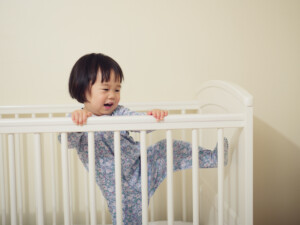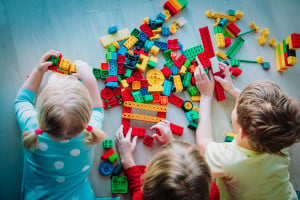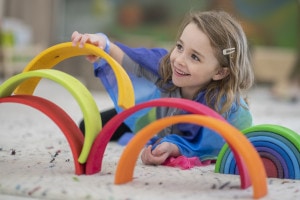Babies are perfectly designed to spit up! Most babies spit up at some point, and some babies seem to spit up all the time. But it’s usually much more distressing to the new parents than it is to the baby. So what’s the deal with spit-up? When is it a cause for concern? How much is too much? These are common questions from every new parent who finds themselves wearing a burp cloth over their shoulder all day while constantly managing everyone’s laundry.
What is baby spit-up?
Spit-up happens when a baby has reflux, and most normal and healthy babies have some degree of reflux.1 Reflux is when the contents of the stomach basically go the wrong way. The “correct” progression of breastmilk or formula is to go from the baby’s mouth to stomach through the long tube that connects them, called the esophagus. Once in the stomach, the contents travel through the rest of the gastrointestinal tract (GI) and exit the body into the diaper.
However, when a baby has reflux, the stuff inside the stomach goes up instead of down. So the stomach contents go back up the esophagus and can sometimes come out the mouth or even the nose. Yes, it’s all connected! Most of the time, this is a normal process that happens in healthy infants.
Why does spit-up happen?
Young babies are more prone to having reflux for several reasons:
- Their GI tract is immature. Everyone has a one-way valve at the top of the stomach to prevent contents from going back up the wrong way, through the esophagus. This valve is a ring made up of muscle that isn’t fully developed in infants, so it can be loose or open at the wrong times.
- Their stomachs are tiny and can only hold so much liquid. When at full capacity, contents can come up and out instead of down.
- They often swallow a lot of air when crying or drinking fast. This air takes up room in the stomach and can push the contents back up.
- Babies are often lying on their backs. As they get older and stronger and spend more time upright, gravity helps keep the stomach contents down.
- They haven’t started solid foods yet. Once your baby is old enough for that, it helps keep the contents in the stomach.
One other important thing to know about spit-up is that it always looks like a lot more than it actually is. I love to explain this to distressed new parents with a simple demonstration which you can do at home. Pour just one teaspoon (5mL) of water onto a burp cloth and see how big the stain looks. You’ll be amazed!
When should I worry?
So if it’s not the amount or frequency of spit-up that matters, what does matter? All the other things that your baby is or isn’t doing tell us if the spit-up is something to worry about.
If your baby is doing any of the following, you should definitely check with the doctor because it can be a sign something might be wrong:
- Poor weight gain
- Uncomfortable with feeds or refusing to eat
- Consistent, forceful vomiting, like it’s shooting across the room
- Gets hungry again for a full feed after spitting up
- Blood in spit-up or the stool
- Bright green spit-up
- Fever, irritability, or any concern that your baby is sick
However, if your baby is comfortable and gaining weight, and the spit-up is effortless, it is usually not a problem. We call these babies “happy spitters.” It’s definitely a laundry problem, but it’s not a problem with your little one!
So how long does this last? Will it ever get better?
Reflux is most common when babies are around four months old. It usually starts to improve about six months and resolves by around one year of age. If your baby suddenly starts spitting up when older or is still doing it after age one, you should check with the baby’s doctor.
In the meantime, if you have a “happy spitter” but the spit-up is making you quite unhappy, here are some things you can try to help decrease the spit-up:
- Keep your baby upright after feeding for about 20 to 30 minutes if you can. Avoid bouncing or swinging your baby during this time.
- Make sure you’re not overfeeding your baby. Look for signs of fullness.
- Sometimes smaller but more frequent feedings can help.
- Make sure your baby isn’t drinking too quickly. If nursing, try to make sure your breasts don’t get overfull before a feed. If bottle-feeding, make sure you are using the correct nipple size.
- Try burping your baby more frequently.
- If that doesn’t work, try burping your baby less! Sometimes that can actually do the trick.
- Sleeping on their back is always the safest position, even if that makes the spit-up worse. Babies have an innate reflex to keep their airways clear, so your baby will automatically cough or swallow the spit-up. Babies do not choke on their spit-up.
At the end of the day, if you have a “happy spitter,” you can rest assured that your baby will eventually outgrow this phase. For now, though, keep your burp cloths handy and your fancy clothes in the closet. Because you never know when it’s going to happen!

